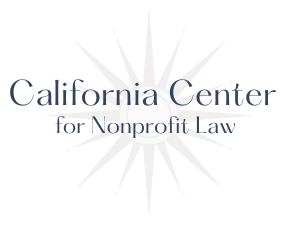
Executive Orders Affecting Charitable Organizations
Since taking office in January 2025, President Donald Trump has issued many executive orders (EOs), some of which directly affect charitable organizations. Many are subject to pending lawsuits, which impacts compliance with those orders. Here are five things that charitable organizations should know about the recent EOs.
- Immigration: Charitable organizations that work with immigrant populations may see an increased need for services, may lose funding, and could become targets for immigration enforcement officials. The EOs concerning immigration include the following
- Protecting the American People Against Invasion (blocks federal funding to sanctuary cities, pauses federal funding for nongovernmental organizations supporting or providing services to immigrants with no legal status).
- Realigning the U.S. Refugee Admissions Program (suspends the U.S. Refugee Admissions Program.
- Protecting the Meaning and Value of American Citizenship (challenges birthright citizenship under the 14th Amendment)
- Ending Taxpayer Subsidization of Open Borders (identifies federally-funded programs that immigrants with no legal status can access to ensure payments to states and localities do not access those programs).
- Securing Our Borders (prioritizes building a wall on the Mexican border and cooperation with state and local law enforcement to remove immigrants with no legal status)
- Immigration: All immigration-related EOs remain in full force and effect, except “Protecting the Meaning and Value of American Citizenship,” which attempts to outlaw birthright citizenship. A federal judge has blocked that EO from going into effect. However, various lawsuits are pending to challenge the other EOs.
- Environment: Nonprofits receiving or have been approved funding from Elective/Direct Pay, the Inflation Reduction Act, or other Infrastructure Investment and Jobs Act programs may see these programs and federal funding terminated. The EOs concerning the environment include the following:
- Council to Address the Federal Emergency Management Agency (creates a FEMA review council to produce a report to determine whether FEMA can serve its functions after public meetings)
- Achieving Efficiency Through State and Local Preparedness (establishes a National Resilience Strategy and a National Risk Register and solicits recommendations on critical infrastructure policies)
- Unleashing American Energy (expands energy exploration on federal lands and waters, eliminates electric vehicle (EV) mandate, terminates Green New Deal)
- Initial Rescissions of Harmful Executive Orders and Actions (revokes the EO that established the Infrastructure Investment and Jobs Act, pauses funding appropriated through the Inflation Reduction Act of 2022 to ensure that funding aligns with White House policies)
- Environment: All four environment-related EOs remain in full force and effect. The only pending litigation challenges the EO that froze funding for the Inflation Reduction Act.
- Other: Recent EOs and some miscellaneous subjects could directly impact funding for charitable organizations. These EOs include:
- Reevaluating and Realigning U.S. Foreign Aid (currently blocked by court order; freezes funding for foreign development assistance to ensure that it aligns with White House foreign policy objectives)
- Initial Rescissions of Harmful Executive Orders and Actions (rescinds previous EO promoting arts, the humanities, and museum and library services)
Charitable Organizations: Call the California Center for Nonprofit Law Today
The laws that govern charitable organizations are complex and ever-changing. We aim to inform you of legal changes that affect your charitable organization. If you need legal advice or assistance, we are here to help. Contact an experienced nonprofit lawyer today. Call the California Center for Nonprofit Law offices at (949) 892-1221, email us at info@NPOlawyers.com, or contact us online for more information today. We offer a wealth of experience handling the unique legal issues that charitable organizations routinely face.
